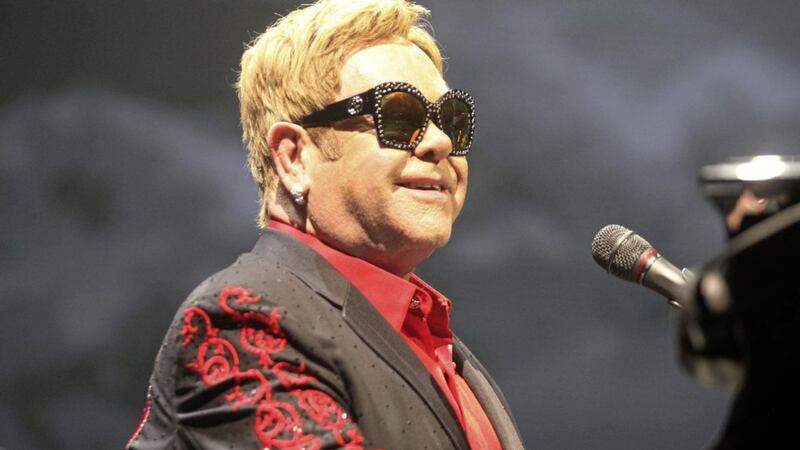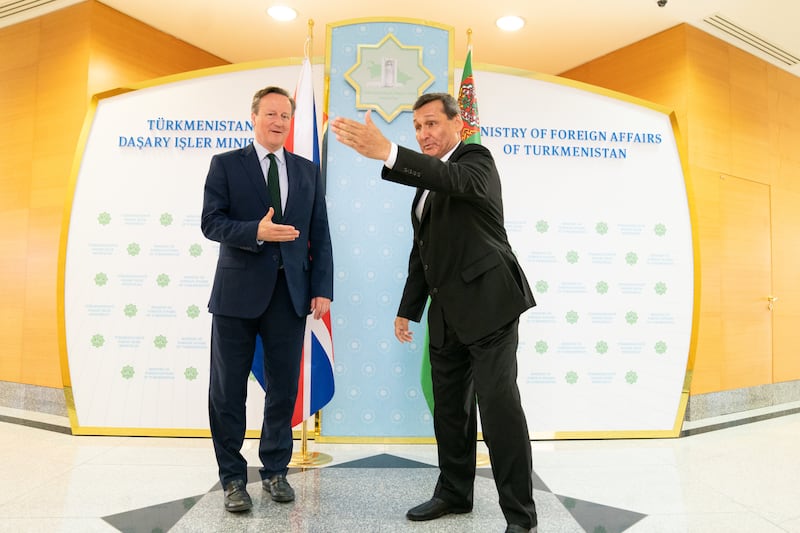WHERE would we be without Elton John? In a recent interview on Channel 4 News he said: “There’s a new cereal called Brexit. You eat it and you throw up afterwards.”
The legendary rock star doesn’t think people knew exactly what they were voting for in the referendum and he said Brexit was “like walking through Hampton Court Maze blindfolded, being turned around 16 times and trying to find your way out.”
Some of us have tried to disentangle the complex riddle. Late last year, a lengthy article on Brexit and the Irish border was jointly written by myself and Naomi O’Leary for a digital publication called OpenCanada. You can read 'Bordering on Division' here.
The 5,400-word piece recalls how customs posts for collecting tariffs and controlling the flow of goods across the border were a common feature until the UK and the Republic became part of the European Union single market. They were also seen by militant republicans as a symbol of partition and therefore legitimate targets for attack. For example, on Armistice Day, November 11, 1956, five posts along the border were blown up and a sixth burnt down.
Currently, of course, the border is almost invisible, but Brexit could well mean that customs posts will re-appear. A draft report prepared for the Irish Revenue Commissioners after the UK referendum, for example, held up the prospect of about eight “designated crossing points” staffed by customs officers.
Whereas posts on the southern side of the border might not be attacked, any such structures that appeared on the northern side would need protection provided by the police and/or British army.
There are no customs duties within the European Union, but states which are not members would generally have to pay such tariffs on goods exported to the EU. That’s where the prospect of a hard border between the two parts of this island arises.
It has been suggested that Northern Ireland be given special status and allowed to remain in the EU customs union. However, this opens the prospect of a customs border down the Irish Sea, which would of course upset unionists and could become quite a burden for exporters from any part of the island.
Another option, suggested by Professors John Doyle and Eileen Connolly of Dublin City University is the model applied in Northern Cyprus, although it is currently occupied by Turkey which is not an EU member-state. Goods can be exported from Northern Cyprus to EU markets without customs duties, provided they are certified as originating in that territory.
A few weeks ago, the British government published a white paper which proposed that, in order to avoid a hard border while at the same time respecting “the constitutional and economic integrity” of the UK, the two entities should establish “a free trade area for goods”. This would ensure “continued frictionless access” and “avoid the need for customs and regulatory checks at the border”. Chief EU negotiator Michel Barnier has serious difficulty with the British approach but, in general terms, talks between the two sides last week seem to have been quite constructive.
Conor Cruise O’Brien wrote at the height of the Troubles that the dilemma facing then-taoiseach Jack Lynch was to make gestures that were visible in Ireland but invisible in Britain, and vice-versa. Likewise, Theresa May’s life would be a lot easier if she could take positions that were visible in Brussels but invisible to the Brexiteers, as well as the other way round.
The UK has never been a wholehearted participant in the European project and has tended to keep at arm’s length, e.g., by holding onto its own currency while the Republic of Ireland adopted the euro. At the same time, the UK is too close, geographically and in other ways, to the European mainland to pretend that the EU doesn’t exist. Therefore a compromise acceptable to both sides would make a sensible and logical inevitable conclusion to the current imbroglio.
When you look into it, a lot of states and regions have a special relationship with the EU. Iceland, Lichtenstein, Norway and Switzerland maintain close EU links without being actual members. Greenland left the EU in 1985 to regain control of its fish resources but a very strong partnership still exists and citizens of Greenland continue to remain EU citizens.
The EU is generally open to constructive compromise, although this wasn’t sufficiently brought home to voters during the Brexit referendum debate. There would obviously be concern that, if the UK gets too soft a deal, other member-states will say: “We’ll have some of that, please.” But past experience shows that creative and workable solutions can be found when the political will is there.
The real backstop for both sides is, as Elton John might put it: Don’t go breaking our hearts.
ddebre1@aol.com








